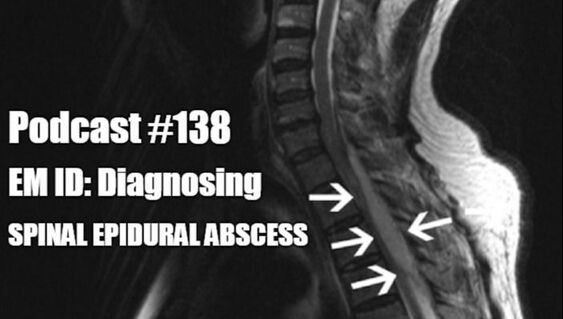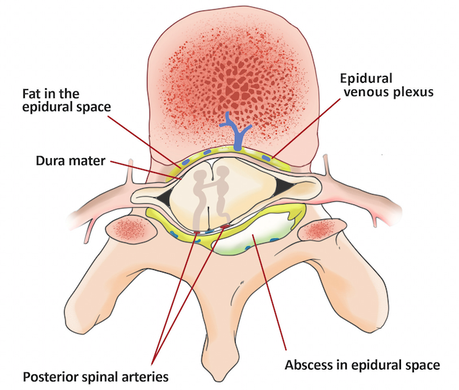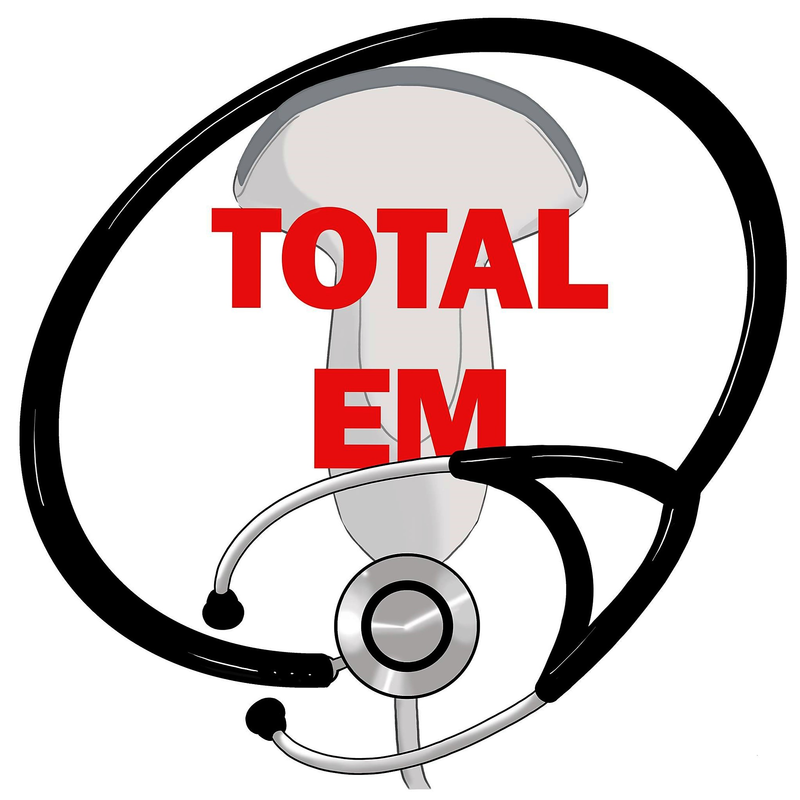|
Thanks to the talents of Patrick Bafuma (who also has the EM in Focus blog), we have a new series on the podcast called Emergency Medicine Infectious Disease (EM ID). The first podcast is with Lauren Westafer who also is part of the FOAMcast podcast and a FemInEM Speaker. These two brilliant minds got together to record a podcast on spinal epidural abscess (SEA).
Patrick and Lauren go straight into talking about the evidence, but let us define spinal epidural abscess (SEA) first. SEA is a pyogenic infection of the epidural space that can mechanically compress on the spinal cord. It can lead to devastating outcomes including neurological deficits or even death. The gold standard for diagnosis is magnetic resonance imaging (MRI) with gadolinium enhancement (contrast). Given that most of the time it is located in the lower thoracic or lumbar spine, some have advocated for MRI from T10 through L5. However, case reports demonstrate infection at higher levels including the cervical spine so imaging should be considered where there are findings in the appropriate context. Lauren generally recommends imaging the adjoining area. If the patient has lower back pain for example, get both MRI of the lumbar and thoracic spine. She may only localize to one area if there is isolated pain at one extreme (high on the neck or very low in the back).
Fortunately, Patrick did a talk in September 2018 about SEA and vertebral osteomyelitis (VO). His many resources and citations, including that talk can be found on this Google Drive. Most of the citations for this discussion (unless directly linked) are in those papers on his drive. The main challenge with SEA and VO is diagnosis. Not everyone with back pain needs MRI and especially in the emergency settings. However, here are the main patients to consider for emergent MRI.
Lauren went over risk factors that has been observed in patients with SEA:
There are also less commonly listed risk factors to consider which are either overly sensitive or less common in the rate of occurrence partly due to these being smaller populations:
Check out some additional resources such as EP Monthly, Core EM, and Academic Life in Emergency Medicine (ALiEM) for even more information. Also, the University of Michigan has a quality management program going over VO, discitis, and SEA so check out that document, too (PDF included below). Let us know what you think by giving us feedback here in the comments section or contacting us on Twitter or Facebook. Remember to look us up on Libsyn and on iTunes. If you have any questions you can also comment below, email at [email protected], or send a message from the page. We hope to talk to everyone again soon. Until then, continue to provide total care everywhere.
1 Comment
Lisa
7/19/2024 12:08:54 am
(Got rid of Herpes simplex)…
Reply
Leave a Reply. |
Libsyn and iTunesWe are now on Libsyn and iTunes for your listening pleasure! Archives
August 2022
Categories |
||||||||||||



 RSS Feed
RSS Feed